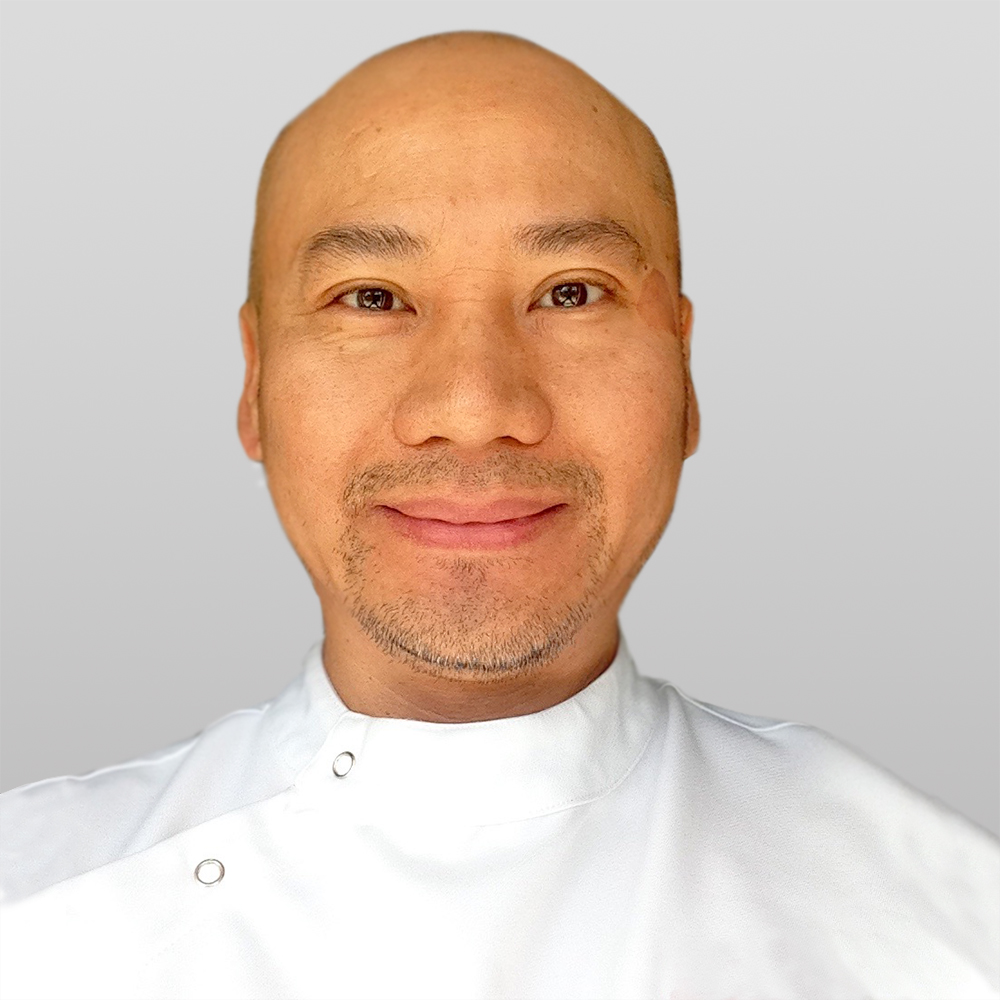What is a Headache?
A headache is pain that occurs in the head and can range from a dull ache to a sharp pain. Once the specific type is diagnosed from amongst numerous causes, an appropriate treatment is arranged by your doctor. Preventions can be suggested to optimise the management of chronic headaches and hence, your lifestyle is less inhibited.
Common Causes of Headaches
Generally, the headache pain results from unusual brain activity when the specific nerves in our blood vessels and muscles in the head area are switched on. This stimulus sends a pain signal to the brain.
Dehydration
When the body is dehydrated, the body becomes low in water and electrolytes. The body sweats and urine is excreted through the day and it is important to replace this with sufficient frequent water and balanced good eating habits. As the body is deficient in water, the brain shrinks away from the skull, causing the headache. The blood flow and oxygen to the brain is also lower, which triggers blood vessels to open up to supply the head. This contributes to headaches as well as other accompanying signs like dizziness and lethargy.
Infection
Illnesses from bacteria and viruses may cause the sinuses (cavities in the nose area), to become swollen. Since these cavities adjoin to the forehead area, the resultant pressure that builds up here, causes the headache. Throat or ear infections can also contribute to pain in the head.
Stress
The nerves in our head are sensitive to emotional stress, anxiety and depression. Stress can cause muscles to tighten and affect nerves, especially in the face and head.
Lack of Sleep
Adverse changes in sleeping habits and routine can contribute to stress and headaches. The body may produce an imbalance of chemicals like cortisol and serotonin to counter the stress, and help mood and sleep.
Poor Eating Habits
Missing main meals disrupt the normal cycle in the body, in maintaining nutrition to the head and elsewhere, all through the body. Low sugars in the blood cause blood vessels to swell, contributing to headaches.
Posture
Whether sitting, standing or even sleeping, an awkward or poor posture over prolonged periods create strain on the neck and back muscles. In turn, stress and poor sleep occur, which aggravates headaches.
Your environment
Strong, pungent smells in the immediate surroundings can trigger headaches. These aromas include cigarette smoke, perfumes, food and household chemicals. Pollution, noise, flashing lights and even abrupt changes in weather may result in triggering a headache.
Alcohol and Hangovers
Alcohol dilates and irritates blood vessels, especially in the head, causing a throbbing pain that is spread out rather than just one side of the head. Often, nausea is also experienced and the headache is worse if no nutritious meal has been recently eaten.
Genetics
A family history is a common occurrence with headaches, particularly migraines. This frequency of hereditary trend in the child getting headaches, ranges from:
• 70% if both parents have migraines
• 35% if one parent has a history
• 90℅ if any other family member experiences headaches.
Vigorous activities
Strenuous, work overload, sex or too much physical activities can lead to exertional headaches. The pulsating throbbing in the head is due to the blood vessels in the head, neck and scalp, swell to give adequate blood supply to these areas, whilst being active. This headache type normally happens during or straight after the activity and may last from five minutes to two days. Jarring exercises can trigger more headaches.
Hormonal headaches
Periods, menopause and pregnancy, as well as contraceptive pills and hormone replacement therapy, causes changes in the hormones, oestrogen and progesterone. This can result in headaches and should be referred to your doctor, if the headache becomes severe like in menstrual migraines.
Symptoms and Ways to Manage Different Types of Headaches
Below are a few common examples, from more than a hundred headache types. The pain in the majority of headaches ease with good, healthy habits such as:
• adequate fluid intake like water.
• diet rich in protein and complex carbohydrates, with plentiful vegetables and balanced fruits.
• moderate exercise, especially fresh air outdoors.
• meditation to relax the mind and manage anxiety or other stress.
• adequate routine sleep.
• keep any caffeine or alcohol intake to a minimum or non-sporadic.
Magnesium is a beneficial supplement to take the edge of pain like headaches. As well as helping to settle nerve pain part of headaches, magnesium promotes good, balanced mood chemicals to reduce stress and assist in soothing slumbers. Keep to the lowest dosage regimen of one to two tablets daily to minimise diarrhoea that occurs at higher daily dosages.
Stress or Tension-Type Headache
These headaches normally develop as a result of stress or anxiety. It is a dull pain associated with a feeling of tightness around the head and on the neck. Otherwise, there are no other common accompanying signs and symptoms.
Management:
• Rest, adequate water, healthy diet, exercise, regular sleep pattern.
• Intermittent paracetamol with or without anti-inflammatories such as aspirin or ibuprofen, if tolerable.
• Referral to a doctor to review any underlying depression and any need for other prescription pain relievers.
Sinus Headache (link to future Sinus blog)
When the sinuses are filled up with yellow or green mucous in an infection, the pressure causes a deep, constant pain. Often, the pain distributes in the cheekbone, bridge of the nose, forehead and normally, comes along with blocked ears, runny nose, fever or tender face.
Management and resolutions:
• Sinus nasal sprays regularly
• Decongestant tablets and nasal sprays (for up to 4 days only, to reduce rebound blockage of nose). These can be combined with paracetamol and/or anti-inflammatory tablets, only taken when needed and for short term, unless specified by your doctor.
• Antibiotics, prescribed by your doctor if appropriate.
• Surgical drainage.
Headaches from Jaw or Dental Problems
Jaw tension or clenching and grinding teeth can cause severe headaches and jaw pain. In these cases, the muscle strain from continuous jaw activity, even during sleep, affects the surrounding nerves in the face, causing pain.
Treatment:
• See a dentist to check the jaw, teeth alignment or any poor biting habits, to plan any adjustment or teeth guards.
• Temporary pain relief with paracetamol if needed.
Headaches Caused by Infection
Infections from a variety of germs and microbes, are usually evident when the headache can be coupled with the following symptoms:
• Pain in the nose, ears and throat, especially with difficulty in swallowing
• Green mucous coming from nose, or discharge from ears, or phlegm.
• Persistent fever, which further opens the blood vessels, worsening the headache.
Treatment:
See your doctor as soon as possible to accurately diagnose. Short term pain relief can be obtained with paracetamol, but it may mask the fever and severity of the possible infection at the time of your doctor's appointment. Therefore, it is preferable to not take this, leading up to seeing your doctor.
Hunger Headaches
When you are hungry, especially when main meals are missed, there is low sugar in the blood and blood vessels swell up. The body goes into a state of survival where the main nutritious blood supplies the heart as a priority. Therefore, the brain and head are starved of sufficient blood supply. These headaches can occur with other signs like:
• Light-headedness, paleness, tiredness
• Generally, not feeling your best.
Management:
• Keep to timely arranged meals, rather than missing any main meal. Smaller frequent meals may help to prevent hunger episodes. Healthy nuts, carrots or celery sticks are good snacks to avoid mid-meal to reduce any hunger-triggered headaches.
• Drink adequate water throughout the day.
• Temporary taking paracetamol when needed.
• Refer to your doctor if the hunger-type headache becomes severe at any time or if it persists longer than a couple of weeks.
Medication-Induced Headaches
Some medications that dilates and open up blood vessels, such as those used to manage high blood pressure, can cause headaches. Overusing pain medications may contribute to pain in the headache when the pain relieving effect wears off or there is a rebound effect. If any of these headaches that occur from medications, see your doctor or pharmacist, to identify and manage.
Migraines (link to future Migraine blog)
Migraine headaches are experienced as a pounding and throbbing pain in the head. Typically, it lasts four hours, but may be prolonged to as long as three days and can repeat up to four times each month.
A characteristic of a migraine headache is that it also occurs with the following symptoms:
• Sensitivity to light, smell, noise; blurred vision.
• Vomiting or a nauseous feeling
• Appetite loss, stomach pain, upset or reflux.
• In children- pale face, dizziness, sore tummy, fever, or vomiting.
Women are three times more likely than men to suffer with migraines, with a new gene recognised as a culprit.
Treatment and management:
• Identify the triggers and aim to avoid them as much as possible, such as certain foods, alcohol and excessive smoking.
• Maintain a healthy diet, exercise, sleep patterns and relaxation techniques.
• Ice packs.
• Refer to your doctor for a management plan, which may include prescription medications to quickly relieve a migraine and those that prevent the pain. There have been advancements in various dosage forms of these medicines, such as nasal sprays and wafers that dissolve under the tongue, which gives very quick effect. Any underlying conditions such as depression, stress or heart issues are commonly discussed as well.
Ear, Nose and Throat-Related Headaches
Since the cavities in the nose, forehead and eustachian tubes of the ears are all interconnected, the build-up of mucous and resultant pressure causes pain in these three areas.
Treatment:
• Adequate fluid intake to hydrate and flush germs out of the body.
• Simple saline nasal sprays allow drainage to flush excess mucous produced with the inflamed linings of the nose, which in turn, reduces blockage and pain in the nose, ears and forehead.
• Over the counter analgesics such as paracetamol with or without anti-inflammatories (with food and only if tolerated) can ease mild pain, when taken when needed.
• Throat lozenges containing local anaesthetics and an anti-inflammatory ingredient can soothe soreness in the throat.
• Surgical drainage.
Headaches that persist for a couple of weeks, see your doctor for a proper diagnosis and treatment. Particularly, if there are the following symptoms, which may be due to a bacteria infection:
• Green mucous discharge from the nose or ears.
• Coughing up greenish-yellow phlegm
• Pain in the ears
Post-Traumatic or Post-Concussion Headaches
Headaches that occur immediately after a head injury, generally, go away after a few minutes or days. However, sometimes these headaches can persist for months. These longer-term headaches are Post-Traumatic or Post-Concussion Headaches, with most of the following symptoms appearing, 2 to 3 days after the head injury:
• Dull aches in the head that intermittently reoccurs and gets worse.
• Light-headedness or vertigo.
• Hard to focus, confusion.
• Losing short and long term memory.
• Feeling lethargic and easily agitated or irritated.
Treatment:
Consult your doctor if these headaches don't go away and continue for more than two weeks after the head injury.
Cluster Headaches
• Are extremely painful, with an intense burning and piercing effect.
• Affects 1 in 1,000 Australians, with men being up to four times likely to experience cluster headaches than women.
• Occurs quite suddenly and in groups or “clusters” across several days or weeks.
• Normally, situated behind or around one eye, becoming red and teary.
• Have eyelid that droops and pupil getting smaller, on the painful side of face.
• Can expand to other areas of the face and neck, with the nostrils becoming stuffed up.
• Affected sufferers pace around during an attack, finding it hard to sit still.
Management and treatment:
• Adequate daily water and healthy diet, sleep and exercise routines.
• Supplements like magnesium are useful; also, valerian to aid any sleeplessness.
• Temporary paracetamol and/or anti-inflammatory medicines, when needed.
• Doctor management plan for recurrent or persistent cluster headaches for longer than two weeks. Prescription medicines can be used to give relief immediately as well as prevent further or reduce the headaches.
Thunderclap headaches
• Severe pain in the head that has no obvious cause
• Other common signs include nausea/ vomiting, confusion, fever, problems with speech and vision.
• Usually when a blood vessel in the brain tears, ruptures, narrows or even blocked
The underlying conditions causing thunderclap headaches include:
• Strokes where there is bleeding (haemorrhage) in the brain or a blood clot blocking the blood flow in blood vessels of the brain
• Blood pressure changes during pregnancy
• Head injuries.
All the cases, mentioned above, require immediate health attention such as a hospital emergency setting. Quick diagnosis and subsequent treatment is crucial to prevent any possible brain damage.
How Your Pharmacist Can Help
Walk into a pharmacy, to discuss with a pharmacist the details of your headaches to ascertain an individualised plan to manage your pain. As well as discussing lifestyle measures, suitable complementary medicines are suggested to aid in any underlying reasons that are aggravating the headaches and help reduce pain. For severe cases, a pain MedsCheck comprehensively identifies possible causes and remedies, in a written plan which is given to your medical practitioner.
To seek further information to elaborate on this general advice, refer to your Pharmacist or GP.
References
https://headacheaustralia.org.au/https://www.betterhealth.vic.gov.au/health/conditionsandtreatments/headache



